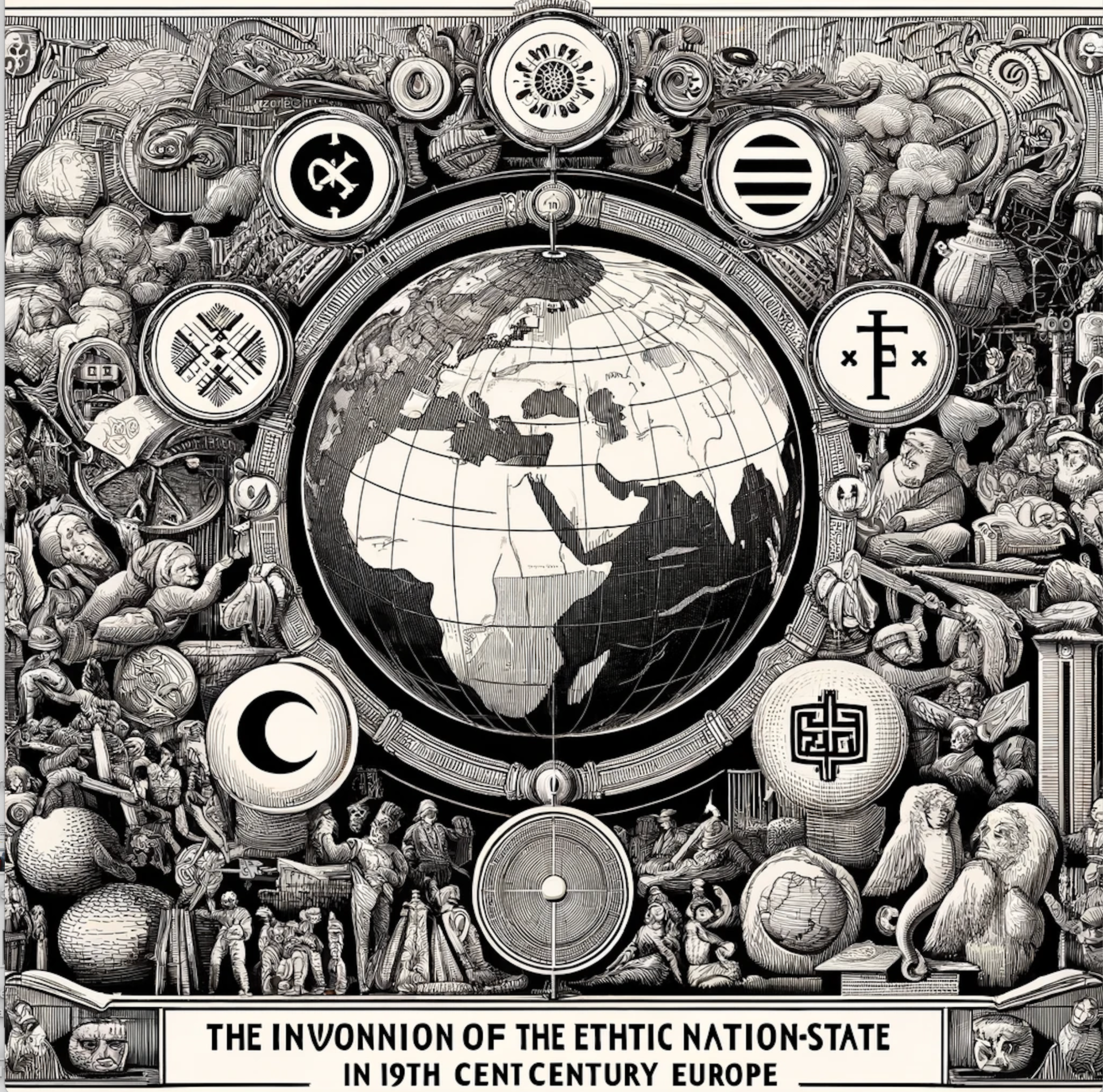We still live under an ideological regime derived from the bizarre categorisations of human beings developed at the peak of colonial conquest in 19th and early 20th century Europe. It was under the context of burgeoning nationalisms that tied ethnicity to land claims in which various 19th century ideologies were formed in Europe. Other than fascism which would erupt in the wars of the early 20th century, Zionism was coined and emerged in the aftermath of the European identity-crisis of the post-Napoleonic political landscape. With Spain and Portugal long in decline, the main imperial powers of Europe rested in France and England. In these centres of colonial-racial regimes, contemporary scientific theories developed by Charles Darwin (1809-1882) gave rise to the idea of ethnicity as a claim to state and territory.
Beginning with the French Revolution in 1789, the idea of a “people” identifying with the culture, language, and religion of their state began to form.1 In a country as rich and ethnically diverse as France which was composed of several different languages and cultural groups including the Occitans, Corsicans, Catalans, Basques, and Britons, the Revolution considered linguistic diversity a threat to the unity of the people.2 The superiority of the Parisian dialect langue d’oïl was politically enforced over all other dialects and languages in the territory of France. Mixed with concepts of race that had been implemented during Europe’s colonial projects, there emerged the theory of the ethnic nation-state that spread throughout the continent and beyond and irreversibly changed the political panorama.

This image was generated with AI.
Europe had previously been largely defined by competing royal houses who fought for dominance over large areas regardless of the peasant populations who lived there. Now, the fervour for the nation struck at the core of the multi ethnic and multi-faith empires of Russia, Austria-Hungary, and the Ottomans. Growing resentment against foreign leaders foreshadowed the Greek war of Independence (1821-1829) followed by revolts throughout the Balkans. In 1848, a general European revolution broke out called the Springtime of Nations. Revolutions broke out in Italy, France, Germany, Denmark, Hungary, Ukraine (at the time Galicia), Sweden, Switzerland, Poland, Romania, and Ireland among others. The idea that states were connected to the identity of a people and simultaneously to territory was widely established as a European morality. The regime of borders, citizenship, and the invention of migrants as “foreigners” and alien to the land is the de-facto hegemonic order of contemporary politics, yet, is something invented and popularised 150 years ago.
These revolutions of the people were by no means unjustified. If romantic ideals of nationalism had instilled themselves in the ethnic minorities of great empires, it was because those in power had similarly been transformed by the ideas but with the ability to implement great harm onto populations. The repression of minorities in Europe has a much longer history - for instance the inquisition or the Vatican’s violent repression of sects since the Middle Age, yet none of these repressions came along with claims of territory. In the early 20th century, the Ottoman Empire dealt a heavy hand onto its ethnic and religious minorities who were becoming more threatening to a weakening core. This led to the events of the Armenian Genocide and growing resentment within Arab populations, and set the stage for a weak and morally decrepit Empire to be targeted by the British and French who would now use the situation to their own ends.
It is also in this context where the concept of Zionism was developed. The Jewish people lived throughout Europe in many of the empires and new countries that were emerging. Unlike other groups, the Jewish people did not have a claim on territory and did not fit in to the new ideas of the nation-state. The first proponent of Zionism had been Napoleon Bonapart - who suggested in 1799 during a failed campaign, that the Jewish people should establish a national home in Palestine. He was a figure who spearheaded nationalism as a concept to unite generally disunited nations such as France and Germany - eventually leading to the ideas of Nazism that arose in the 20th century. Hitler’s obsession and admiration for Napoleon is well documented. From the same stem, Zionism was proposed as a solution to what early nationalists saw as an ungrounded Jewish community who belonged nowhere in Europe.
